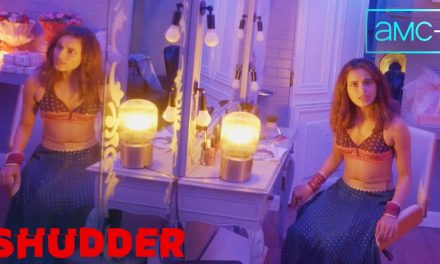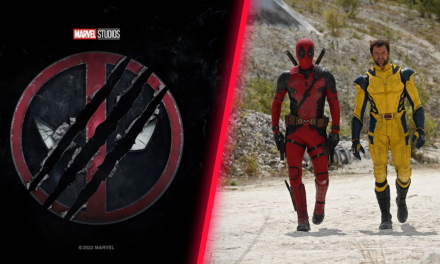The Last Showgirl takes an incisive, cutting look at the entertainment and performance industries, exploring how heavily they emphasize the value of (perceived) beauty and youth, and the way in which they dispose of women who no longer fit a certain mold. The story follows Shelly (Pamela Anderson), who has been performing as a dancer in a Las Vegas show called “Le Razzle Dazzle” for decades. But the show has fallen on increasingly hard times, with attendance dwindling year after year as other flashier, more updated shows take over the strip.
When news that Le Razzle Dazzle is being cancelled breaks, it doesn’t matter that Shelly dedicated her entire life to performing in it. Nor does the fact that she eats, sleeps, and breathes a love for the stage. Shelly — and all the other performers — will have to find a new show to take them on, or hang up their feather boas and dancing shoes forever.
The role proves an incredible turn for Pamela Anderson, who easily captures Shelly’s struggle. It’s heartbreaking to watch a woman realize she’s dedicated her entire life to something she loves, only to have it all taken away in the blink of an eye. She’s not just being stripped of a job she’s held for decades, though that would be hard enough. She’s being stripped of her very identity.
At the same time, the show’s closure forces Shelly to confront some difficult truths about the life she’s led up to this moment. While she constantly talks up the pageantry and “French sensibilities” of Le Razzle Dazzle, genuinely believing the show to be one-of-a-kind, her fellow dancers scoff at the idea. Shelly can’t fathom how the show could shut down; it seems everyone else involved can’t fathom how it stayed running for so long. This is especially true for Shelly’s estranged daughter Hannah (Billie Lourd), who believes Shelly essentially chose performing over being a present mother in her life. As Shelly loses the show and struggles to maintain a hold on what remains of her relationship with Hannah, she’s left wondering how things could have been different.
Throughout the film, we see how the performance space assigns value to these women based on their youth. Their age is a commodity, and the older a woman gets, the less valuable she is. We see this plenty with Shelly and her younger peers, but also through her friend Annette (Jamie Lee Curtis), who’s seeing her hours as a cocktail waitress increasingly cut back in favor of keeping younger servers on the clock.


One of the things that sets The Last Showgirl apart is the way it showcases this dynamic through its different characters. Through the women of this film, we see how each has been impacted by this social stigma, and how each perceives the industry differently based on their age and experience with it.
Jodie (Kiernan Shipka), for instance, doesn’t seem very fazed by the show’s closing; the youngest and newest dancer at Le Razzle Dazzle quickly picks up auditions for other shows on the strip. When Jodie performs a piece from her next gig for Shelly, the other woman is shocked and appalled. Shelly thinks the choreography is trashy, over-sexualized, and lacking in the classic theatre showmanship she loves so much. Jodie shrugs this off; she thinks it’s kind of fun.
Though Shelly insists Le Razzle Dazzle is a different (classier, superior) type of show, both Jodie and Mary-Anne (Brenda Song) dismiss this idea. (Shelly’s own daughter, too, openly derides the show when she finally comes around to see it). Whereas Shelly considers performance an art and a calling, Mary-Anne considers it just a job — one that already seems to be rejecting her, as she struggles to land the same auditions as Jodie. Contextualizing this systematic problem with each of these characters provides the audience with much greater insight into the issue, as well as how the cycle perpetuates over time.

I wish The Last Showgirl expanded more on Shelly’s relationship with her daughter, and that we got to see more of her specific struggle to navigate prioritizing her performance career while parenting. Still, the film overall remains compelling and deeply moving. The performances are great; Anderson gives this her all, making you really feel how heartbreaking it is for Shelly to realize this life she loves no longer loves her back (if it ever did). And as the media landscape and entertainment industries continue to sell narratives that tie self-worth to youth and beauty, The Last Showgirl is a watch well worth everyone’s time.
The Last Showgirl premieres in theaters January 10.

![The Last Showgirl: A Powerful, Moving Look At Aging, Beauty, & Entertainment [Review]](https://thathashtagshow.com/wp-content/uploads/2025/01/the-last-showgirl-review-1280x640.png)




